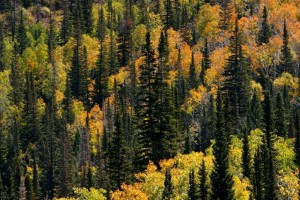Early one high summer evening in Virginia Beach, Virginia, during the late 1960s, I spent time with a Shashone Medicine man, Rolling Thunder, and helped him set up a healing ceremony. It involved two teenage boys both with serious unhealed wounds. Along with about 50 other people, a large percentage of whom were physicians, I stood in the mostly unpaved parking lot behind the lecture hall of the Association for Research and Enlightenment, the organization built around the work of Edgar Cayce. We were gathered in a circle around a massage table and watched as a boy was brought out on a rolling gurney from an ambulance, and lain upon the table. The dressing on his leg had been taken off, and it was easy to see he had a serious wound, deep into the muscle. I had seen such wounds as a medic in the Army.
Holding the breast and extended wing of a crow, Rolling Thunder made stroking movements over the boy׳s leg, flicking the wing towards a piece of steak that lay on the ground at the head of the table at the end of each pass. Never touching, just an inch or two […]
No economic, political, or military power can compare with the power of a change of mind. By deliberately changing their images of reality, people are changing the world.1
– Willis Harman, Institute of Noetic Sciences
Over the years, many of us periodically bump into experiments in healthcare that cause us to think, “This changes everything!” Such studies are convincing not only because of the empirical evidence they offer but also because they feel important to us personally. These findings strike a nerve. They often rattle our worldview, our fundamental concepts of how things work. They send us back to the drawing board of reality and make us re-think.
The Potted-Plant Study
This was my experience decades ago when I read a report that is often referred to as “the potted-plant study.” Published in 1976, the experiment was devised by social psychologists Ellen Langer and Judith Rodin.2 Langer and Rodin wanted to see if nursing-home residents could improve their well-being if they were given the responsibility of taking care of a […]
I
In May 2011, a postdoctoral student at Los Alamos National Laboratory named Park Williams set out to predict the future of the dominant iconic conifers of the American Southwest — the Douglas fir, the piñon pine and the ponderosa pine. As the planet warms, the Southwest is projected to dry out and heat up unusually fast — few places will be more punishing to trees. Williams couldn’t rely on climate models, whose representations of terrestrial vegetation remain crudely unspecific. He needed a formula that could accurately weigh the variables of heat, aridity and precipitation, and translate atmospheric projections into a unified measure of forest health.
For decades, all over the planet, heat-aggravated droughts had been killing trees: mountain acacia in Zimbabwe, Mediterranean pine in Greece, Atlas cedar in Morocco, eucalyptus and corymbia in Australia, fir in Turkey and South Korea. A year earlier, a group of ecologists had published the first global overview of forest health. They described […]
Citation: S.W. Feist , G.D. Stentiford, M.L. Kent, A. Ribeiro Santos, P. Lorance. Histopathological assessment of liver and gonad pathology in continental slope fish from the northeast Atlantic Ocean. Marine Environmental Research, 2015 [link]
Deep-water marine fish living on the continental slopes at depths from 2,000 feet to one mile have liver pathologies, tumors and other health problems that may be linked to human-caused pollution, one of the first studies of its type has found.
The research, conducted in the Bay of Biscay west of France, also discovered the first case of a deep water fish species with an “intersex” condition, a blend of male and female sex organs. The sampling was done in an area with no apparent point-source pollution, and appears to reflect general ocean conditions.
The findings have been published in Marine Environmental Research, by scientists from Oregon State University; the Centre for Environment, Fisheries and Aquaculture Science in the United Kingdom; and other agencies. It was supported by the European Union.
The research is of particular interest, OSU researchers said, when contrasted to other studies done several years ago in national parks of the American West, which also found significant pollution and fish health impacts, including male fish that had been “feminized” and developed eggs.
“In areas ranging from pristine, high mountain lakes […]
“If a nation expects to be ignorant and free, in a state of civilization, it expects what never was and never will be.” — Thomas Jefferson
Just how stupid are we? Pretty stupid, it would seem, when we come across headlines like this: “Homer Simpson, Yes — 1st Amendment ‘Doh,’ Survey Finds” (Associated Press 3/1/06).
“About 1 in 4 Americans can name more than one of the five freedoms guaranteed by the First Amendment (freedom of speech, religion, press, assembly and petition for redress of grievances.) But more than half of Americans can name at least two members of the fictional cartoon family, according to a survey.
“The study by the new McCormick Tribune Freedom Museum found that 22 percent of Americans could name all five Simpson family members, compared with just 1 in 1,000 people who could name all five First Amendment freedoms.”
But what does it mean exactly to say that American voters are stupid? About this there is unfortunately no consensus. Like Supreme Court Justice […]












